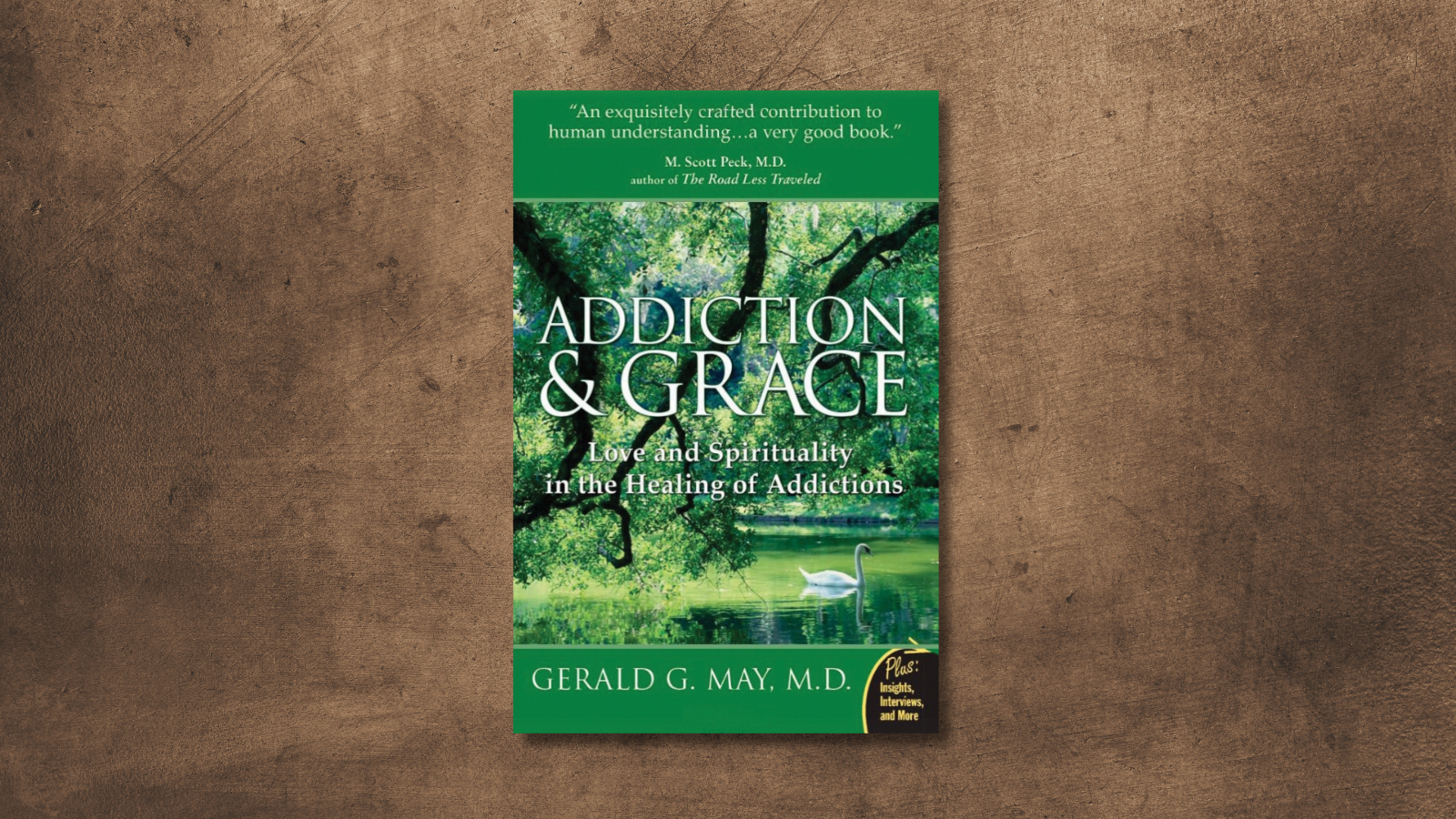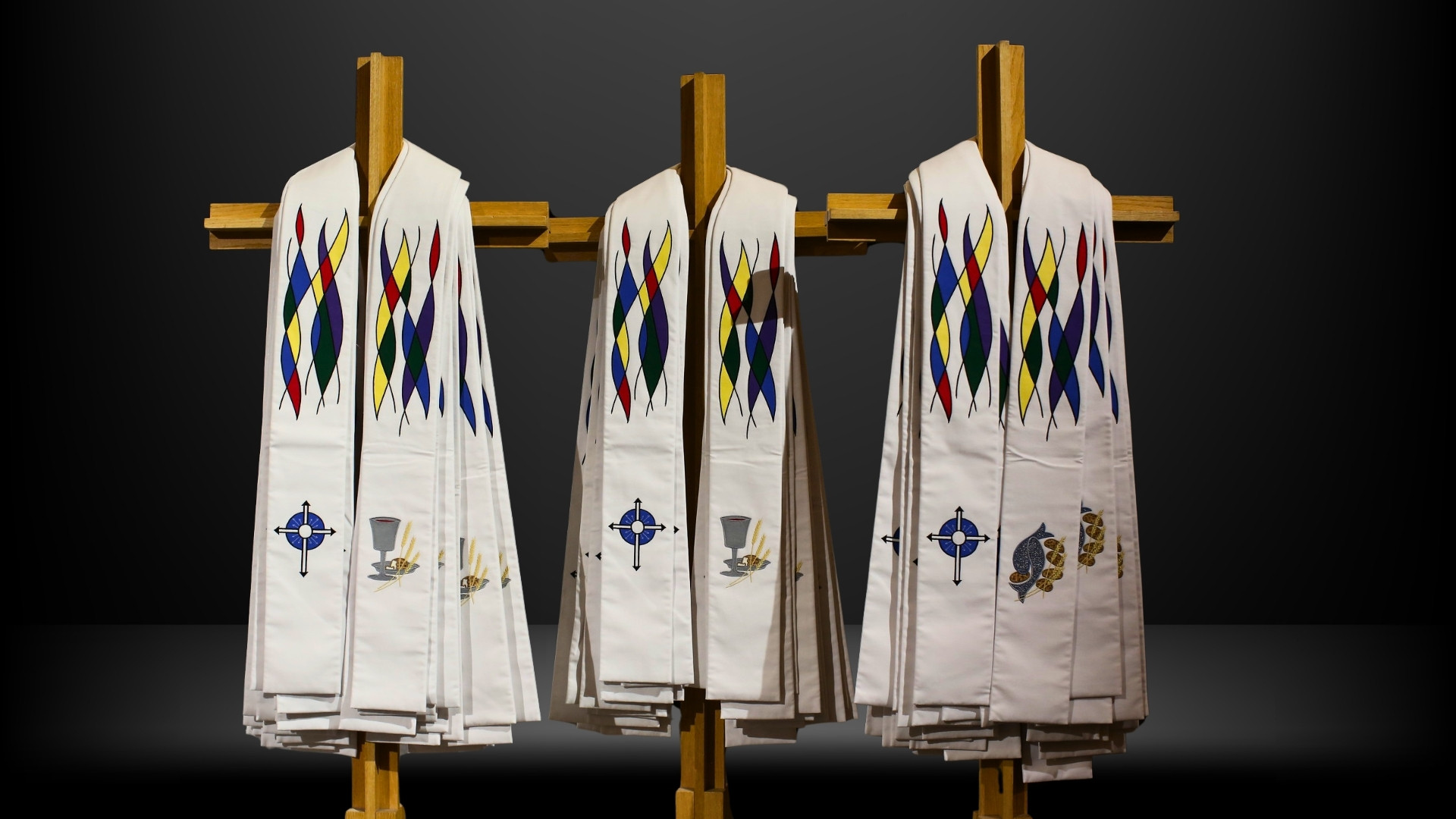Addiction & Grace
Love and Spirituality in the Healing of Addiction
Gerald May
HarperOne, 240 pages
According to Gerald May, everyone is an addict.
Without diminishing the struggle and suffering of addiction to drugs, alcohol, sex, gambling, etc., May, who was a physician, psychiatrist, and theologian, attempts to broaden our thinking on the subject in this classic text originally published in 1988. Writing at the intersection of psychology and contemplative spirituality, May invites readers to be freed from the complex web of mental, physical, and spiritual attachments we call addiction.
Humans can become addicted to virtually any substance, behavior, or pattern of thinking—coffee or smart devices, sex or stress, being helpful or being right, worrying or working, food or exercise, silence or socializing. Clearly some addictions are more destructive than others, and some are more socially acceptable than others. In fact, some addictions (such as busyness or workaholism) are extolled as paths to success in our culture.
But from a spiritual perspective, we know attachment to anything other than God is idolatry. The problem is not with the thing (or behavior or thought pattern) itself. The issue is our warped desires. Addiction “sidetracks and eclipses” our fundamental desire for love, goodness, and God, May writes. Preoccupied with our idols, we are unable to freely choose the grace God offers. Deep down, we know these attachments aren’t good for us. We say we want to be rid of them, and sometimes we mean it. Still, we are unable to cut them loose. With the Apostle Paul, we find that “what I want to do I do not do, but what I hate I do” (Romans 7:15).
May illuminates the universal experience Paul describes. In mind, body, and spirit, we sustain our addictions through self-deceiving, self-defeating patterns in which our best efforts and intentions actually reinforce the addiction. It’s like spinning your wheels when you’re stuck in the mud—all that effort only gets you stuck deeper. We find freedom, then, not in willful intentions to do better or passively waiting for God to take it away. Instead, we must step away from the willful struggle and participate in the grace of God. Freedom comes through a cooperation between God’s grace and our responsibility. As stuck as we may be, “there is always some level at which we can choose, freely, to turn to God or to turn away from God…to be willing for our attachments to be lightened or to hold on to them.” God’s grace is waiting to meet us in the spaciousness on the other side of addiction, empowering us to untangle our attachments and live free.
This book is a refreshing word for addicted persons as fully integrated people—body, mind, and spirit. May writes for an interfaith audience but grounds his approach in the Christian story. While his insights on the neurology of addiction have been outpaced by more recent scientific advances, his integrated approach still rings true. Anyone seeking to better understand addiction beyond the stereotypes and stigmas will find Addiction and Grace to be a helpful companion, especially if we are willing to take a hard look in the mirror.














